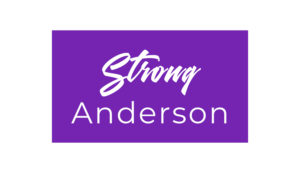Process
Appointment of Nominee: The individual appoints a Nominee who will:
- Assist the individual in preparing a viable proposal to put to their creditors;
- Report to the Court of the likelihood that the arrangement will be successful and whether in their option a meeting of creditors should be held to consider the proposals and
- Make an application for a interim order, if appropriate.
Proposal and Statement of Affairs: The individual will prepare proposals and a statement of affairs to put to their creditors with the assistance of a Licensed Insolvency Practitioners who is known as the nominee. The proposal can make any number of suggestions to creditors. However, in practice the individual must offer the creditors a better outcome than they would expect to receive if the individual were to be made bankrupt.
Notices to Court and Creditors: The proposals are sent to creditors for their consideration and a notice of a Qualified Decisions Procedure will be sent . A minimal of 14 days’ notice of the Qualifying Decision Procedure is required to be given to the creditor’s.
Creditors’ decision procedure: At the Qualifying Decision Procedure creditors have the opportunity to approve, change or reject the proposals. A proposal is approved when 75% or more of those voting in the decision procedure have approved them (by value of debt). A second vote is then taken without ‘connected’ creditor participation, and as long as 50% or more vote for acceptance of the IVA, it will be passed.
Interim Order
If there is pressure from creditors or an impending petition during the IVA process a interim order can be sought at the outset which will protect the individual and their assets. The interim order acts as a breathing space. Once in place creditors will no longer be able to take, or pursue, any legal action against the individual.
Effective date
The appointment of the supervisor is effective from the date the creditors approve the proposals.
Effect of the IVA
If the proposals are approved, the Nominee becomes the Supervisor and implements the arrangement under the proposal or modified proposal. It is binding on all creditors.
The Supervisor sends notice of approval of the IVA to all known creditors.
If the IVA is not approved, you will remain in your current situation. You will have no protection from recovery action by your creditors and it is possible that one of them may petition for your bankruptcy. You can find out more about bankruptcy here.
Duties of the Supervisor
The supervisor will:
- Collect the agreed monthly payments and realise any assets included in the arrangement;
- Ensure that the individuals adhere to the terms of the arrangement;
- Agree creditors’ claims and
- Distribute the funds to the IVA creditors.
Conclusion of the IVA
The IVA finishes at the end of the agreed terms after all payments and realisations have been made and all conditions of the IVA have been adhered to. At this point any outstanding unsecured debt will be written off and the individual will be legally free of all the IVA debts.
If the IVA is not successfully completed and the arrangement subsequently fails, the arrangement terms may require the Supervisor to petition for your bankruptcy. More information on bankruptcy can be found here.
Advantages of IVAs
- An IVA is a way to avoid bankruptcy proceedings and property repossession;
- An IVA allows you to make one affordable fixed monthly payment;
- Legal action by your creditors is stopped as long as you make your IVA monthly contribution;
- The interest on your debts is frozen as at the date of the creditors meeting convened to approve the IVA and
- Debts included in your IVA could be cleared in 5 years.
Disadvantages of IVAs
- Your details will appear on the Insolvency Register, your details will be removed from the Individual Insolvency Register three months after completion;
- Your credit rating will be adversely affected throughout your IVA as details of the IVA will be held on your credit file for six years from the date that the IVA starts.
- Should the IVA fail, creditors may back date interest on your debts or may request your Supervisor petitions for your bankruptcy;
- Not all debts can be included in an IVA, such as court-imposed penalties/fines;
- If you come into any extra money whilst in your IVA, this will be taken into account and you could be expected to pay any windfall into your IVA as well and
- You may have to downgrade or sell any really high value assets (such as exchanging a luxury car for a more economical one).

